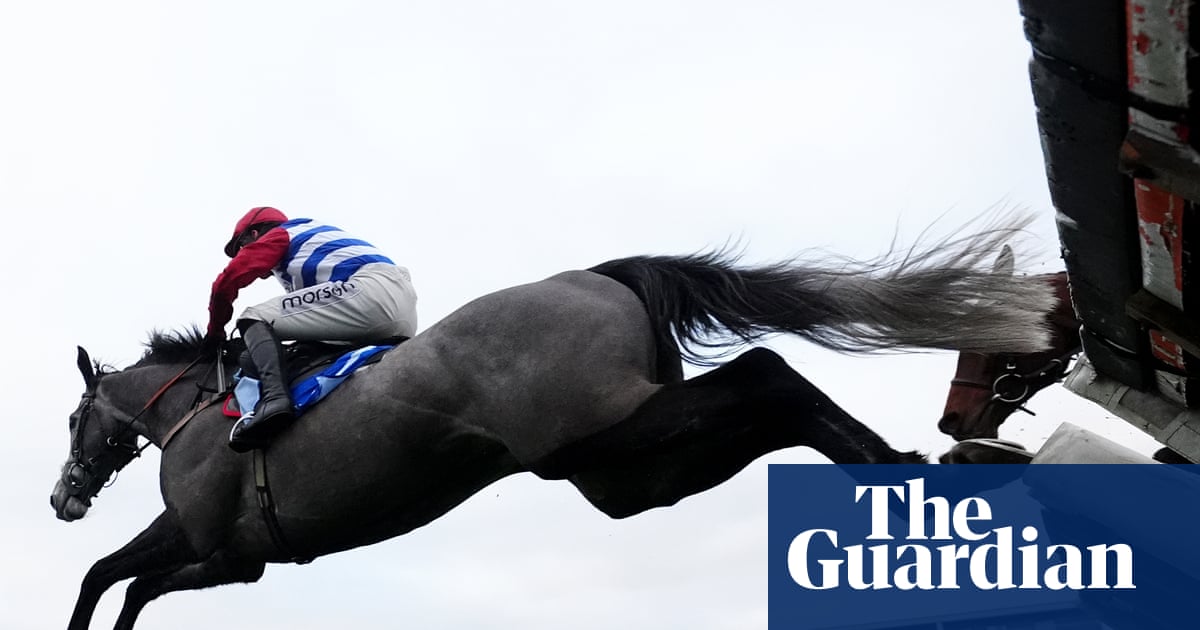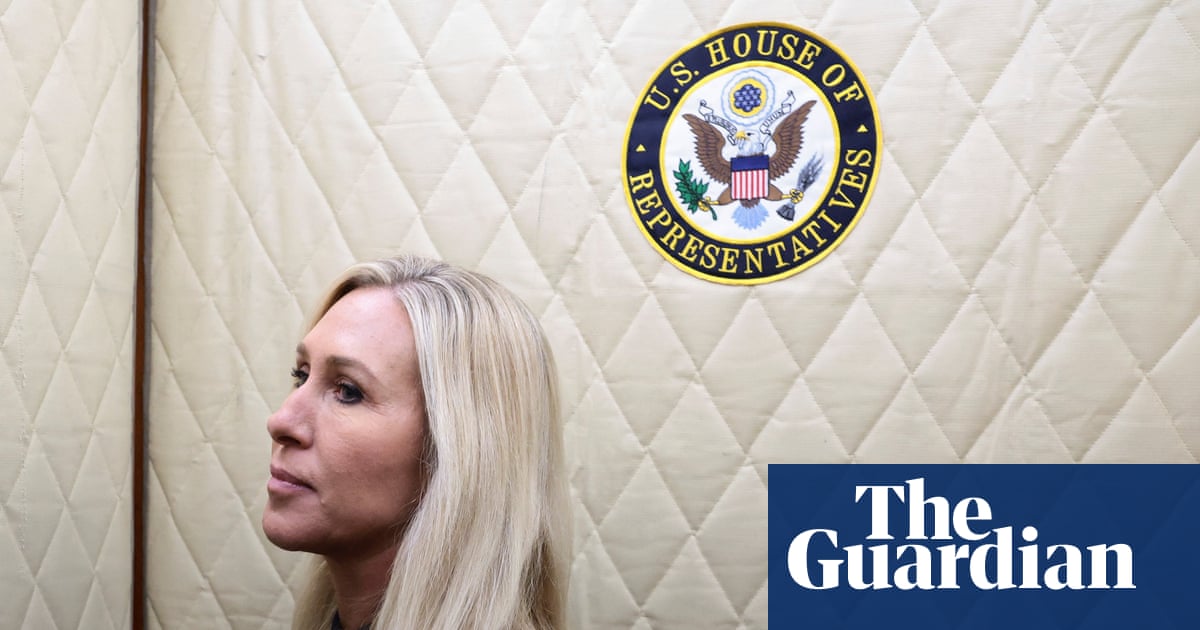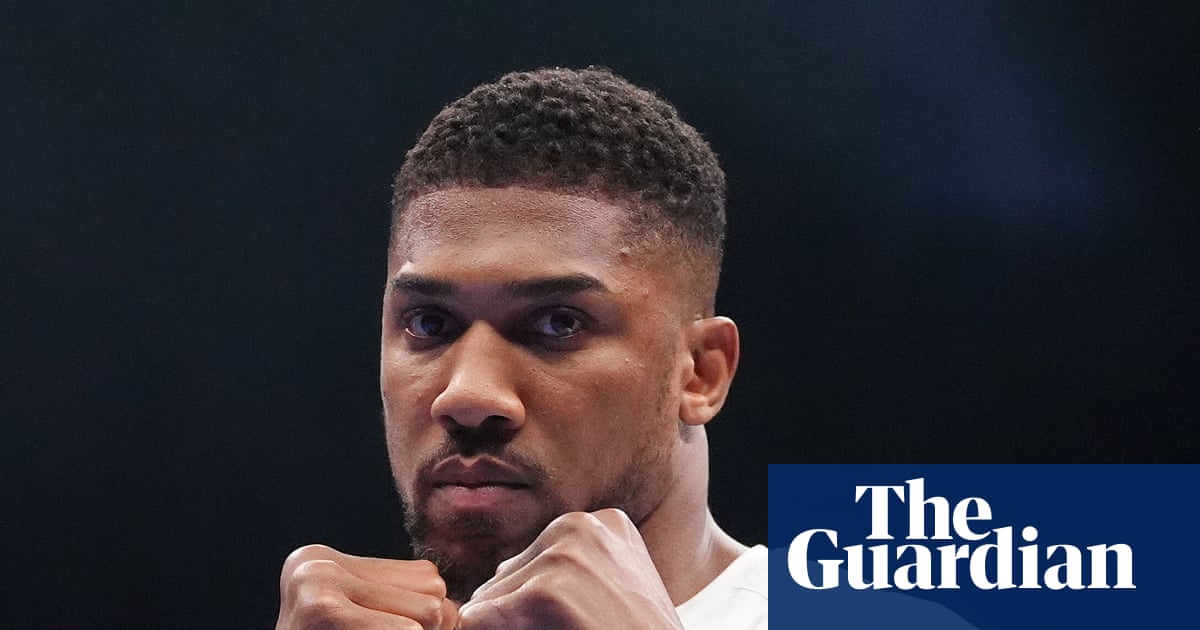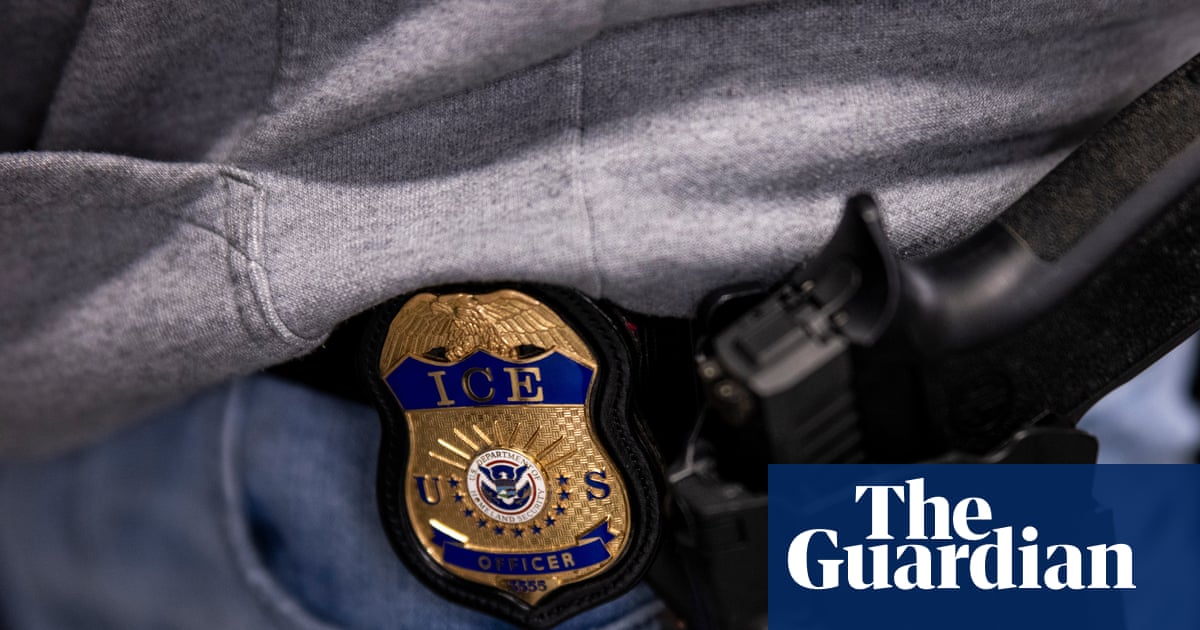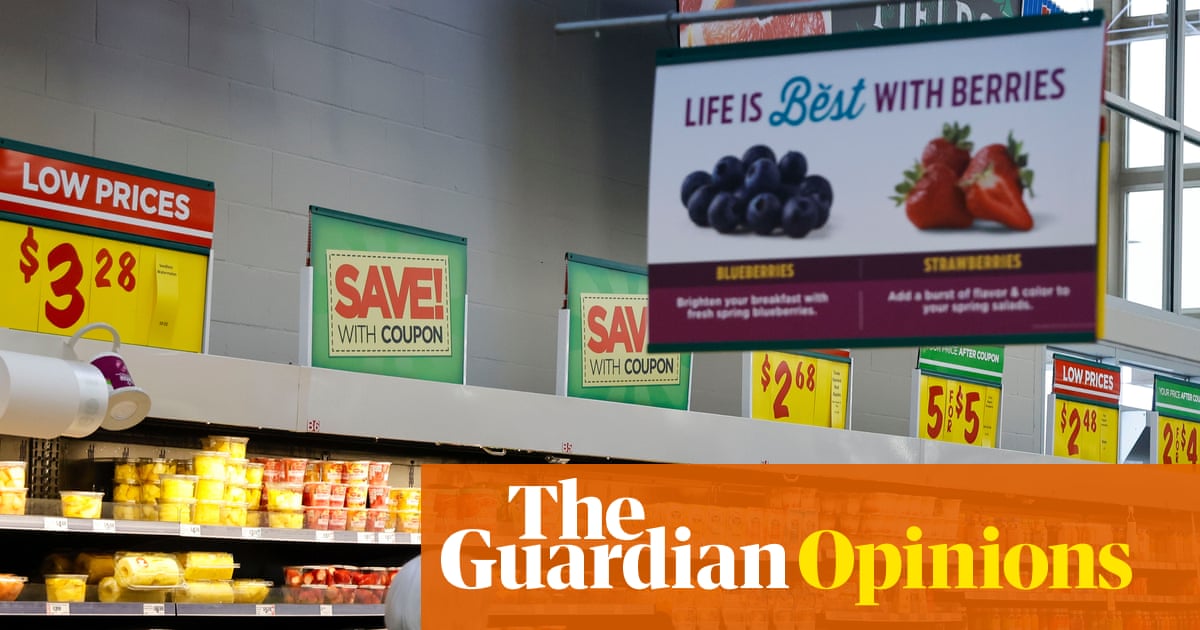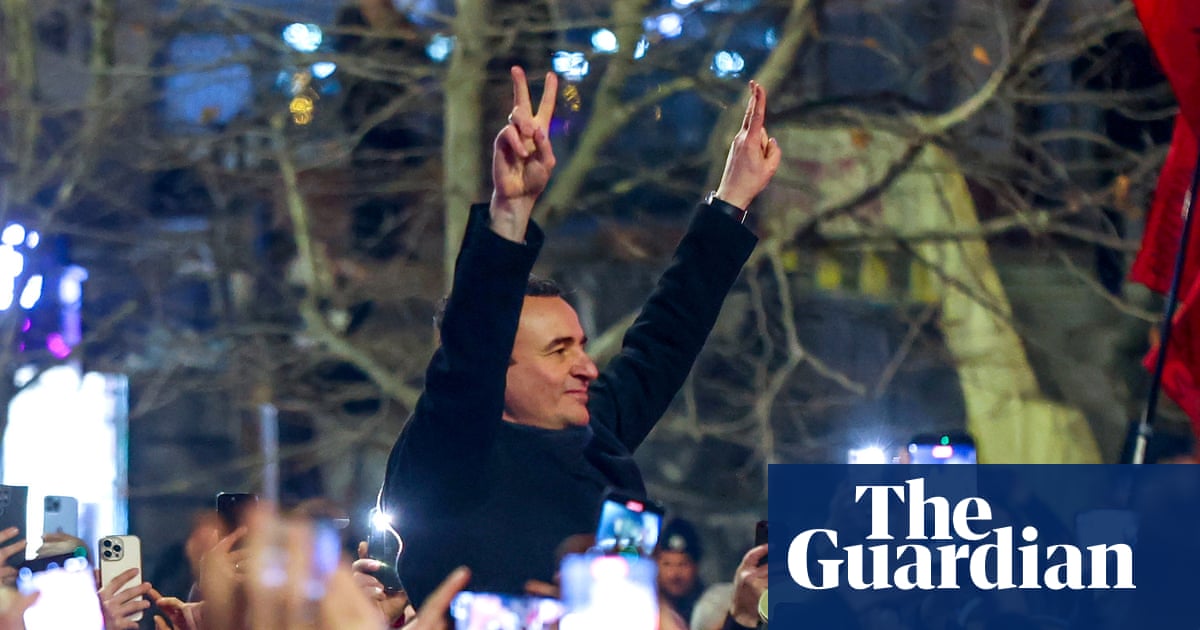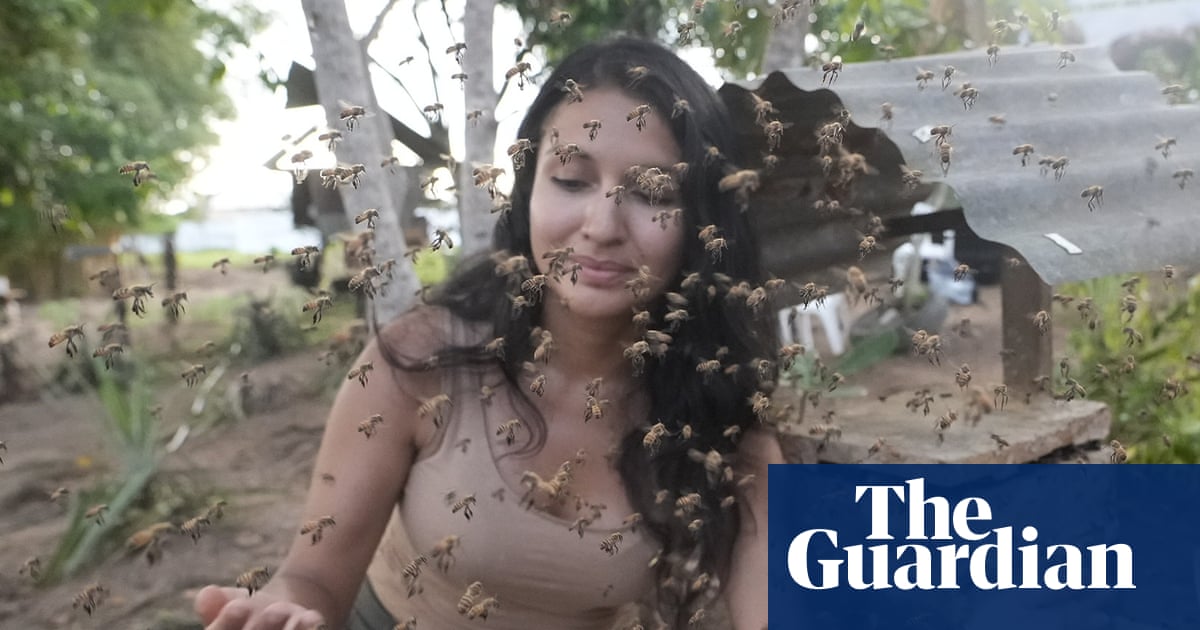At 19 years old, Debsey Wykes stood in front of a sold-out crowd at London’s Hammersmith Odeon, her knees “literally knocking with fear”, as she puts it. It was the end of 1980 and Dolly Mixture were supporting the Jam for a second time, having piqued the interest of Paul Weller. Despite the shaky start, the teen trio made it through the set to appreciative applause. “Everyone is your friend when you support the Jam,” Wykes recalls in her new memoir, Teenage Daydream: We Are the Girls Who Play in a Band.
Dolly Mixture paired girl-group harmonies and pop sensibilities with scuffed-up combat boots and charity shop dresses. Their intricate arrangements remained playfully punk, displaying a songwriting craft well beyond their years. Although beloved by the Undertones and John Peel, as well as becoming the first group to release a single on Weller’s label, Respond, the band never found the success of many of their peers. “I think people were confused,” says Wykes. “One: we were girls, and girls often didn’t play in bands. And if you’re not dressed in jeans and leather, you must be crap and cute. There was no subtlety allowed.”
Dolly Mixture had arrived on the scene a few years ahead of the jangling indie wave, and right before bands such as Shop Assistants and the Pastels would bring precious pop back into vogue. In 1980, the band didn’t quite fit in with the cynicism and aggression of post-punk. “We had this pop mindset; we wanted to be on Top of the Pops,” Wykes says. “It was just an antidote to grey – and punk, which was getting boring.”
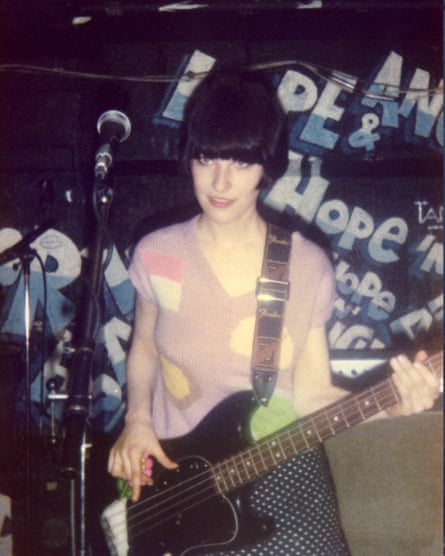
Bonded by a shared obsession with punk, 60s pop, and Eddie and the Hot Rods, Cambridge school friends Rachel Bor (guitar), Hester Smith (drums) and Wykes (bass) formed Dolly Mixture in 1978. They eschewed labels like punks, skins or mods to create their own tribe, naming them and their fans “Dolly Rockers”. “We were trying to be unique,” says Wykes.
The band quickly gained local support. They had only been together about a year when they were asked to open for the Fall in Cambridge. A friend named Dave Goodman (producer and live engineer for the Sex Pistols) had offered to tune their guitars ahead of their set. “We went on and we just heard this awful noise and we didn’t know what it was,” Wykes says. “By the third song we realised it was us.” It turned out Goodman had tuned the guitars “pissed out of his head”, says Wykes. “The lower strings were higher than the highest strings, it was completely mental.”
They also earned the respect of peers: luckily, Robyn Hitchcock, who had recently become a fan and friend, seized their instruments and quickly got them back in order. The band never let anyone tune their guitars again.
The trio began splitting their time between Cambridge and London, playing as much as they could. It was at a London gig that they met Eric Faulkner, former guitarist for their tween idols the Bay City Rollers. Faulkner had liked their show and offered on the spot to produce a single. Several weeks later they were staying overnight at his glamorous apartment at the top of Kings Road, rehearsing for the next day’s studio sessions.
Faulkner graciously woke the girls up each morning with tea and toast. “That was probably all he could make,” says Wykes. At the end of the day’s rehearsal, Faulkner gave the girls some cash and told them to go down to the supermarket. They returned with groceries, cooked some sausages and watched Eurovision together. “It was really bizarre – nice guy!” says Wykes.
And a backstage encounter with the Undertones led them to invite Dolly Mixture to play with them in a nearby town. A week later, Wykes was at home playing piano when her mother announced: “There’s an Undertone on the phone for you.” It was guitarist John O’Neill, calling to ask if the band could join them on the remainder of their tour dates. They were elated and quickly said yes.
Undertones fans were rowdier – and spittier – than any that Dolly Mixture had previously encountered. It was even worse when the band joined Bad Manners for a month-long tour a year later, when their shows were drawing some far-right fans. “We came across so many National Front people and they really hated us,” Wykes says. “They were sieg heiling and spitting and trying to get us off the stage. And we would not get off the stage.”
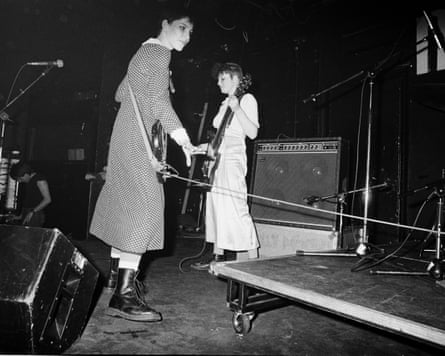
The band remained determined. “We found it quite an interesting challenge, to not get off, and to annoy them. Which we certainly did.” Plus they knew they had backup if anyone tried anything. “There was always someone backstage who would quite happily lump somebody – a fucking massive skinhead in the wings just waiting for the chance.”
Wykes estimates the band played about 190 gigs in 1981 alone. It was a last minute drop-out by the Nips that landed Dolly Mixture their first show with the Jam. A mutual friend had advocated for the band despite Weller’s apparent disdain for their 60s girl group sound. But the trio won him over that night; they had entered the Jam’s orbit and soon began discussing recording some songs for Weller’s newly minted Respond Records. But despite two singles on the label – produced by their new friend Captain Sensible – a proper record deal never materialised. Wykes says when major labels expressed interest in the band, it was always followed by a sexist insistence that other musicians record the music for them. Dolly Mixture always refused. Or, says Wykes, they would say “they already had a ‘female’ on their books”.
after newsletter promotion
In 1982, another collaboration with Captain Sensible took a surprising turn. Happy Talk, Sensible’s first solo single, crashed the Top 100, and all of a sudden the band found themselves on Top of the Pops after all – as his backup singers when the song hit No 1. “It was very odd to step in through the door and have a little look around, get a few free drinks and be treated like you’re No 1,” Wykes says.
While doing TV appearances and music videos for Sensible’s album, Dolly Mixture had plateaued, playing the same kinds of shows as ever without any label backing them. Frustrated, they decided to release an album themselves. The result was Demonstration Tapes, a two-disc LP of brilliant demo recordings limited to 2,000 copies. The band packaged the records themselves and signed them in pink pen. Today, copies are sought-after collector’s items.
In 1984 Bor and Sensible announced that they were having a child, and Dolly Mixture started to wind down. Wykes continues to play music, including a longstanding role as a live member of Saint Etienne. In the interim, Dolly Mixture found fans in K Records founder Calvin Johnson, as well as younger bands such as Alvvays and Tchotchke. Demonstration Tapes has been repressed a number of times, and a rarities LP released in 2019 quickly sold out.
Wykes’s book now adds a few more details to the band’s growing place in punk history. “I wrote this because I wanted to feel better about the whole thing, and put us on the map,” she says. “If I’ve done a little towards that, then it’s a really great thing.”

 3 months ago
56
3 months ago
56


